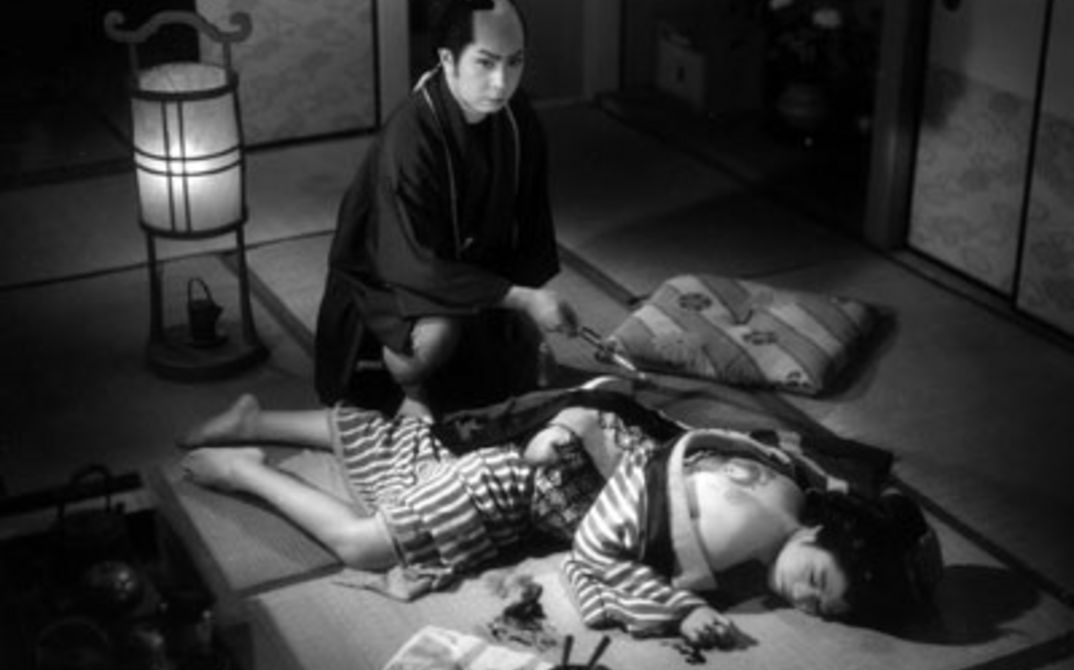"Spanning the pre- and post-war period, the film tells the tale of Seikichi, a working stiff in the Sugawara crime syndicate who's forced to steal a golden Buddha statue from a temple. Instead of turning it over to his bosses, he stashes it and takes off with his lover Okayo, whom his nemesis Umewaka wants as chattel for himself. Gripped with the fear of getting caught, Seikichi turns himself in. He does hard time while Okayo and the Sugawara-gumi await his release on the outside. The film jumps years ahead and now focuses on his daughter Kuwako, who's grown up into a tomboyish but beautiful singer fronting a travelling band. Her dream is to one day meet the father she believes has been a sailor at sea all these years. Sadly, Seikichi barely has time to take a breath on the outside as his ex-cohorts are waiting for him at the prison gates. With its mixture of action, domestic drama, and yakuza intrigue, Lynch is a fairly memorable entry in Nakagawa's filmography. Hangdog-faced chanbara star Arashi Kanjuro (aka "Arakan") was cast against type as a loser with his heart in the right place. While directors like Anthony Mann and Carol Reed were creating brilliant films noirs in the late '40s, Nakagawa was doing it in Japan with Lynch, based on a short story by Sunao Otsubo and first released around Christmas of 1949." Jason Gray
Production: Shintoho, Takei Production
World Sales: Kokusai Hoei
Screenplay: Ozawa Ko, nach einer Kurzgeschichte von Otsubo Sunao.
Cinematographer: Kawasaki Kikuzo
Art Director: Shimogawara Tomo'o
Composer: Hattori Tadashi
Sound: Negeshi Hisao Licht: Hiraoka Iwaji
Editor: Goto Toshio
Cast: Arashi Kanjuro, Kuga Yoshiko, Shindo Eitaro, Tono Eijiro, Ikebe Ryo, Hanai Ranko
Format, screen ratio: 35mm, 1:1.37, b/w
Running time: 98 minutes, 24 frames/sec.
Language: Japanese
Foto: ©Kokusai Hoei
